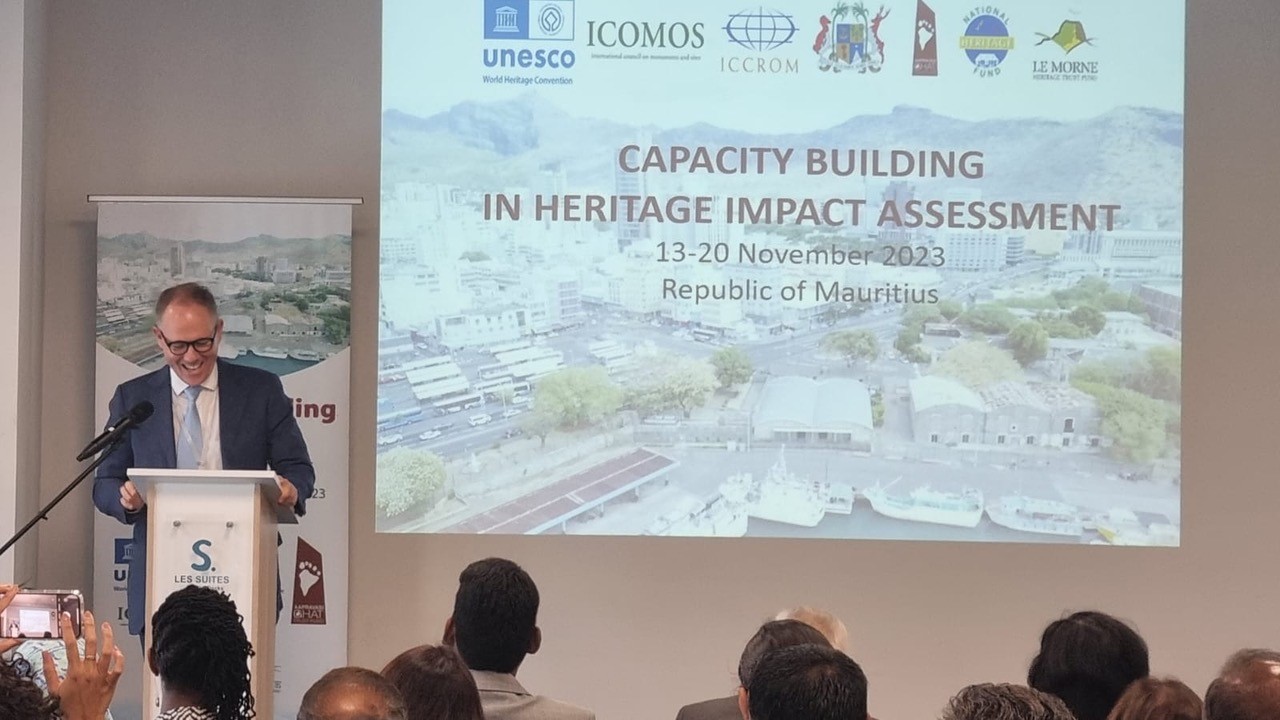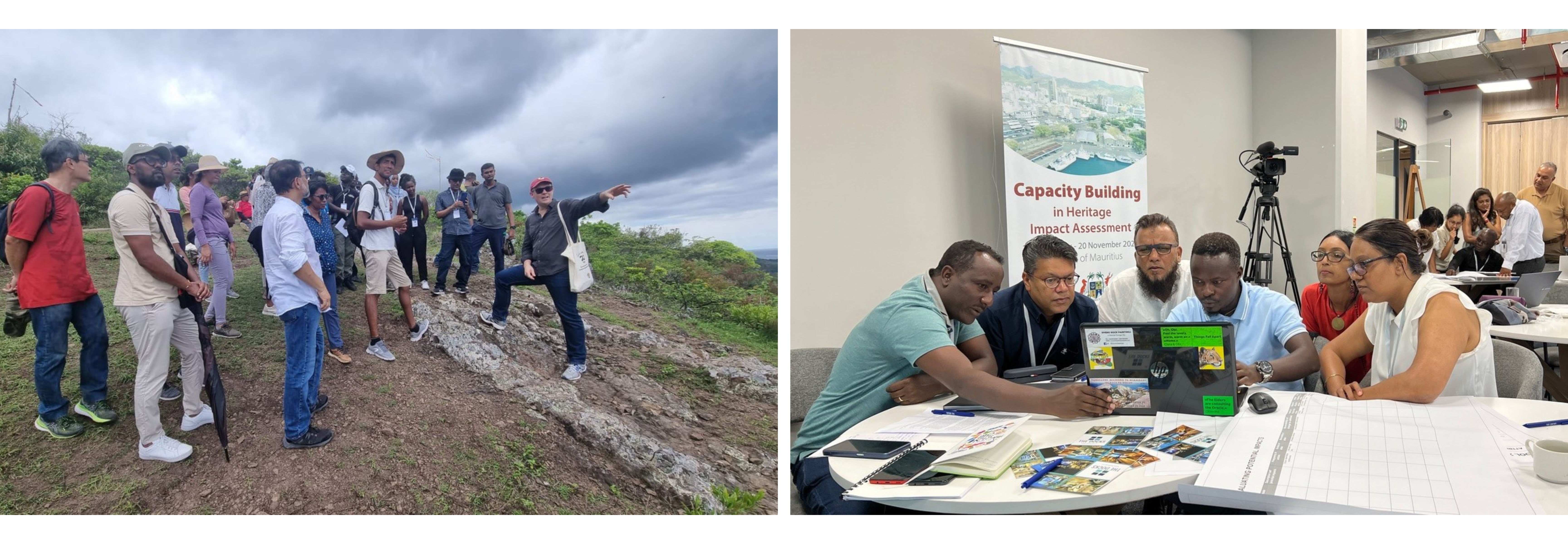 The workshop, which took place between November 13 and November 20, 2023 in Port Louis, Mauritius, saw the active participation of 15 professionals working with World Heritage properties in Mauritius and 10 professionals working with World Heritage properties in Eritrea, Ethiopia, Kenya, Tanzania and Uganda.
The workshop, which took place between November 13 and November 20, 2023 in Port Louis, Mauritius, saw the active participation of 15 professionals working with World Heritage properties in Mauritius and 10 professionals working with World Heritage properties in Eritrea, Ethiopia, Kenya, Tanzania and Uganda.
Organisers
The capacity building on heritage impact assessment was requested by the State Party of Mauritius in the context of an international assistance request. The ICOMOS World Heritage Advisory and Monitoring Unit was responsible for assessing the request by the State Party of Mauritius, identifying resource persons and coordinating the workshop on an administrative level with the help of the UNESCO World Heritage Centre and ICCROM.
The course is jointly organized by the UNESCO World Heritage Centre, ICOMOS and ICCROM and is based on the ‘Guidance and Toolkit for Impact Assessments in a World Heritage Context’, published in 2022 by UNESCO, ICCROM, ICOMOS and IUCN.

Workshop Outline and Structure
The Impact Assessment Capacity Building requested combining online and in-person components for a three-phased approach:
- Phase 1 was conducted online to form a common understanding of the requirements for World Heritage and to identify values and attributes.
- Phase 2 was the in-person workshop held in Mauritius, which covered the entire impact assessment process through the use of fictitious development cases at the Aapravasi Ghat and Le Morne Cultural Landscape World Heritage properties. Participants will produce a scoping report based on the values and attributes analysis from Phase 1 and continue further into Phase 3 during which they will develop an outline impact assessment.
- Phase 3 will be used to support the participants in providing a consultation session with the resource people whom the participants may utilize optionally. The final online workshop will be the presentation of the final impact assessment report, where participants will become peer reviewers for other presentations.
The coordination team of the activity includes 2 international resource people from ICCROM (Sharif Shams Imon) and ICOMOS (Nicholas Clarke, advisor), 2 national resource people from Mauritius, 3 resource people from UNESCO, and the Aapravasi Ghat Trust Fund team.
Photo credits: Nicholas Clarke
See more![]() Guidance and Toolkit for Impact Assessments in a World Heritage Context
Guidance and Toolkit for Impact Assessments in a World Heritage Context

